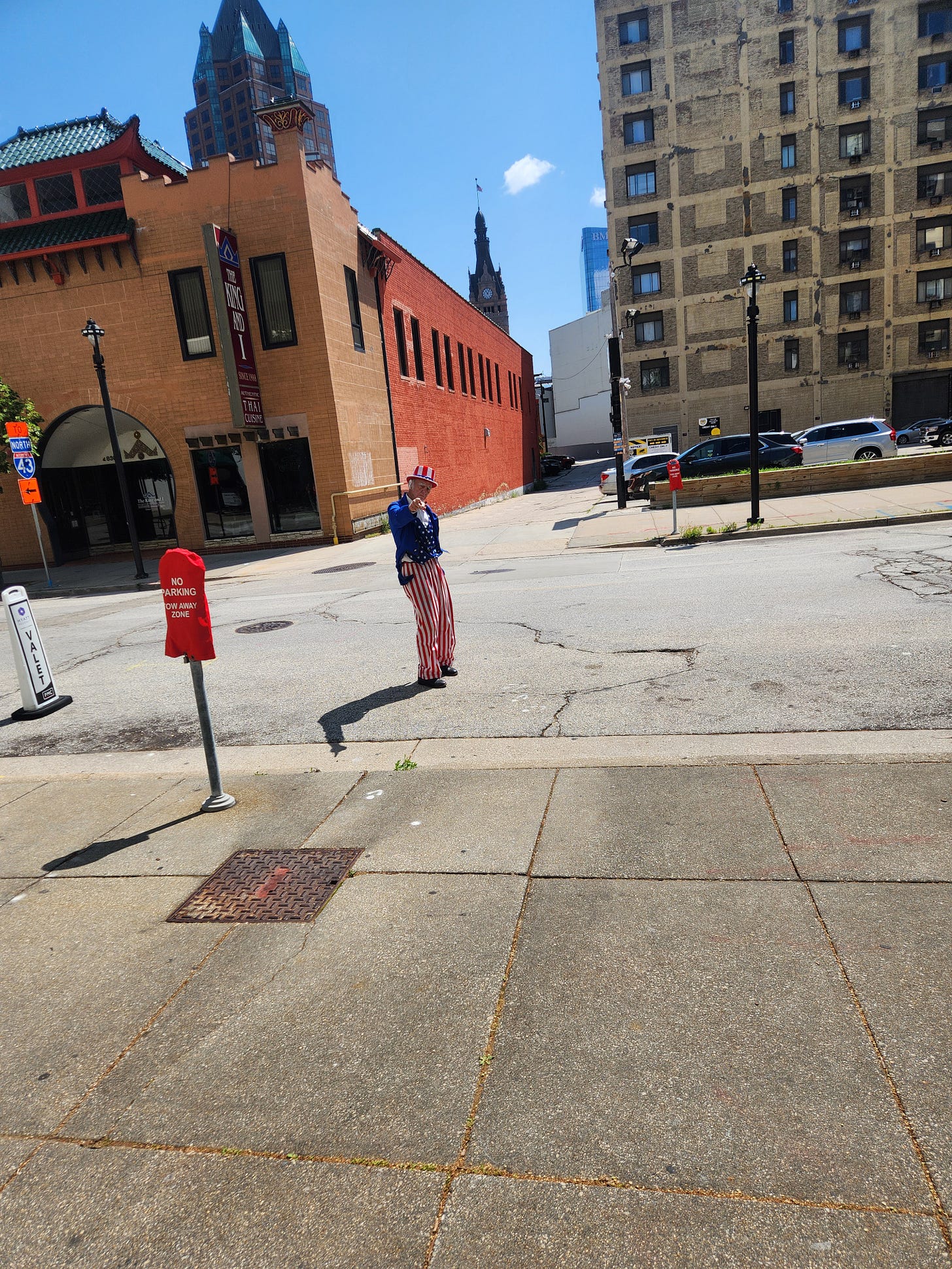Inside the Republican Convention
Trump, sanctified
Donald Trump had a detached, almost beatific smile on his face last night. This might have been because many of the speakers at the Republican National Convention said he had been blessed by God, that it was divine intervention which made the would-be assassin’s bullet miss. He may have looked this way because one of his handpicked federal judges, Aileen Cannon, had dealt a possible deathblow to the classified documents indictment, the one that would, if it ever saw a trial, probably stick. He may have been exulting in his ludicrously good fortune. Bankruptcies, sex scandals, a felony conviction, massive civil judgments, and an ear-flaying bullet could not stop him. Here he was, aged seventy-eight, the Republican nominee for president for the third consecutive time. It is hard to imagine any politician has been loved as fervently as Trump has by those who support him; even Barack Obama’s millenial worshippers couldn’t make a cult of him, and his merchandise, these days, is nowhere to be found. Come to Milwaukee, to this convention, and you will see the real, live sanctification of a human being.
I won’t write enormous amounts on the speeches because you can read that anywhere. If you took the Republican speakers at face value, you would believe crime waves have obliterated most cities, the border brings only death and destruction, Joe Biden is a Marxist, and no one is allowed to identify as a man or woman anymore. A few fumed, on cue, about the fake news. This is the second political convention I’ve ever covered, after the 2016 DNC in Philadelphia, and contrasts have been on my mind. I am much more relaxed now, nearly taking it is easy, indulging in my inner flâneur. Since I don’t have to live-blog anymore or tweet frenetically, my pace of work is slower and ultimately more meaningful. Milwaukee, unlike the East Coast, is pleasantly warm, and I am not sweating through my clothes and drying off in the air-conditioning as I did during Philadelphia’s heat wave. I wandered to the lovely Lake Michigan waterfront and found the Milwaukee Art Museum, which resembles the Oculus. I considered buying a new pair of shoes downtown until I couldn’t find any for less than $300. Due to a scheduling snafu, I ended up at a Quality Inn by the Milwaukee airport—the room, with two beds, a desk, and a couch, is shockingly princely—and this gave me time to hear the Uber drivers and the sidewalk conversations. One white man told another he thought Trump and Biden were both terrible but he reasoned Trump cared more about “self-preservation” and that would make the country safer, as opposed to a president who was senile. One of my Uber drivers, who was Black, said we were screwed with either president. When discussing traffic in New York versus Milwaukee, she blamed the immigrants for clogging the street and “not knowing the laws.”
This convention, arguably, is much less interesting than Philadelphia 2016, when Bernie Sanders commanded more than forty percent of the delegates and a sizable number believed the nomination had been stolen from them. Many hundred marched from City Hall to the Wells Fargo Center, and those who got inside were eager to make their displeasure known. What is similar between Philadelphia 2016 and Milwaukee 2024 is the sense of imminent victory, a glee bordering on smugness that hangs heavy everywhere—all Republicans here are convinced Trump will win in November, just as the Democrats assembled in 2016 were very certain Hillary Clinton was going to be the 46th president. Each convention felt like the first home playoff game for a team that had run away with the division and was treating the World Series as an inevitability.
What’s it like to actually be here?



